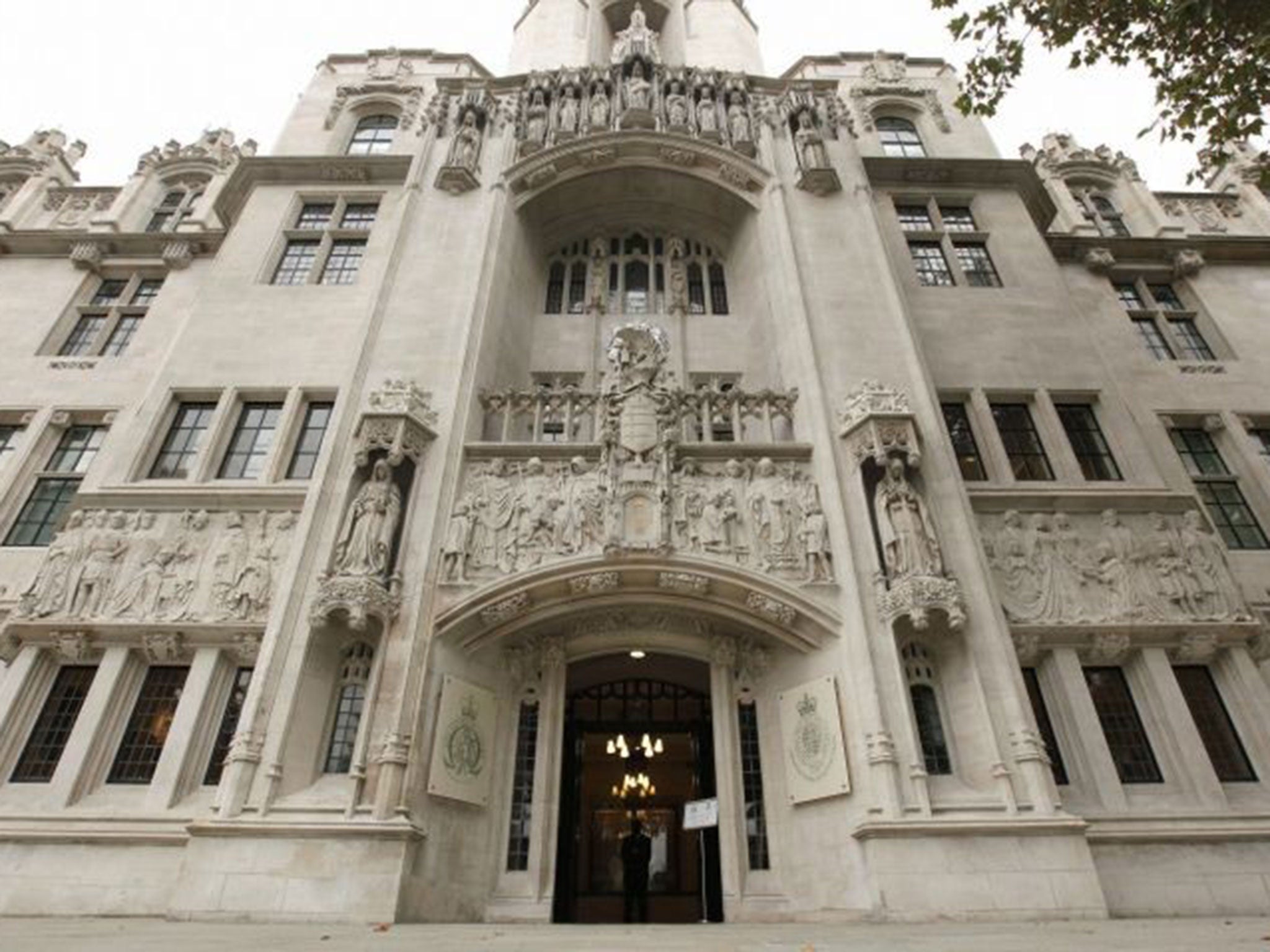Supreme Court set to rule on rights of trafficked Nigerian girl
Decision this week will set a precedent for illegal immigrants treated as slaves

The UK's highest court will rule on a landmark decision of whether illegal immigrants should be deprived of fundamental workers' rights, following the appeal of a Nigerian national who was trafficked into the UK. Judges from the Supreme Court, including Britain's most senior female judge Lady Hale, will deliver the verdict on Wednesday in a case which could set an important precedent for the rights of workers found to be treated as modern-day slaves.
MH, the young woman at the centre of the case, was brought into the UK to work as a domestic servant for Adenike Allen and her husband. MH, who is illiterate and has learning difficulties, believed that she would live with the Allens in London to look after their three children, receive £50 a week and be able to go to school.
While her age remains undetermined, it is thought MH could have been as young as 14 when she was trafficked into the UK in January 2007. During her time with the family, she did not receive pay or education.
MH claimed that Mrs Allen would hit and kick her, and say: "I tell you I'm going to kill you and I will hide you in the garden and no one will know or be able to find you." MH's illegal status, it was argued, allowed her employers to control and threaten her with prison if she was found.
Although MH was aware of the illegality of her actions, her move to the UK had been masterminded by Mrs Allen's mother, Elisabeth Aboyade-Cole, and brother, Adeniyi Aboyade-Cole, in Nigeria. In an affidavit made to the High Court of Nigeria, the girl falsified her name and age to be granted a passport and a six-month visitor's visa from the British embassy under the charade of being the Allens' granddaughter.
After 18 months of violent physical abuse, MH was thrown out of the Allens' home after an altercation in July 2008. She was made to sleep in the garden and was refused entry back into the house in the morning. The distressed victim was found by a doctor in a supermarket car park and taken into social care. MH received asylum for fear of being trafficked again and is still living in the UK.
Following her dismissal, MH and her solicitor, Juliette Nash of the Anti-Trafficking and Labour Exploitation Unit, took the case to the Employment Appeal Tribunal (EAT) in 2011. They claimed unfair dismissal, breach of contract, unpaid wages and holiday pay, and dismissal on racially discriminatory grounds.
Usual protocol would be to bring in a claim for compensation of the national minimum wage, but due to the victim's age, she was not entitled to this. Instead, the claim brought in was for the value of the work that MH had done for the Allens.
The EAT called the case "probably one of the saddest that has come before this tribunal". However, it barred the claims except that of discriminatory dismissal because MH was an illegal worker living in the UK after her visa had expired.
The tribunal advised that the claimant should be awarded £6,000 in damages, after deciding that dismissal on racially discriminatory grounds was not tied to MH's status as an illegal worker.
In 2012, however, the Court of Appeal rejected the tribunal's decision to award compensation after finding MH's dismissal intrinsically linked to her illegal worker status. "If this court were to allow her to make that case, and so rely upon her own illegal actions, it would be condoning illegality," said Lord Justice Rimer. "That is something the court will not do."
David Reade QC, who was the barrister for MH, said: "The Court of Appeal had very significant consequences for anyone who is an illegal worker – depriving them from protection of large areas of anti-discrimination legislation."
With funding from the Equality and Human Rights Commission and intervention from the Anti-Slavery International, MH has been able to bring her appeal to the Supreme Court, in the hope that it will help other victims of trafficking.
"I wanted to do this not for myself, but to help other people and make sure this doesn't happen again especially to young girls like me," she said.
Ms Nash said: "Our grave concern is that it is simply an invitation for abuse if a trafficker can hide behind a defence of illegality."
Subscribe to Independent Premium to bookmark this article
Want to bookmark your favourite articles and stories to read or reference later? Start your Independent Premium subscription today.

Join our commenting forum
Join thought-provoking conversations, follow other Independent readers and see their replies